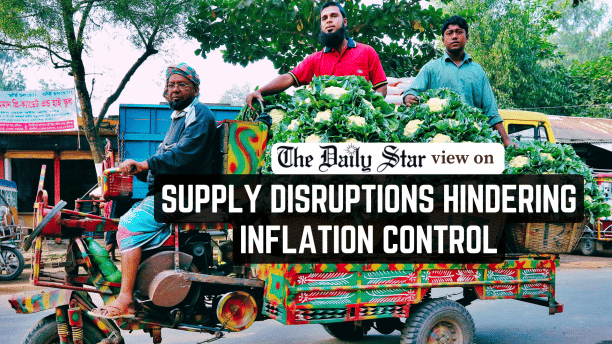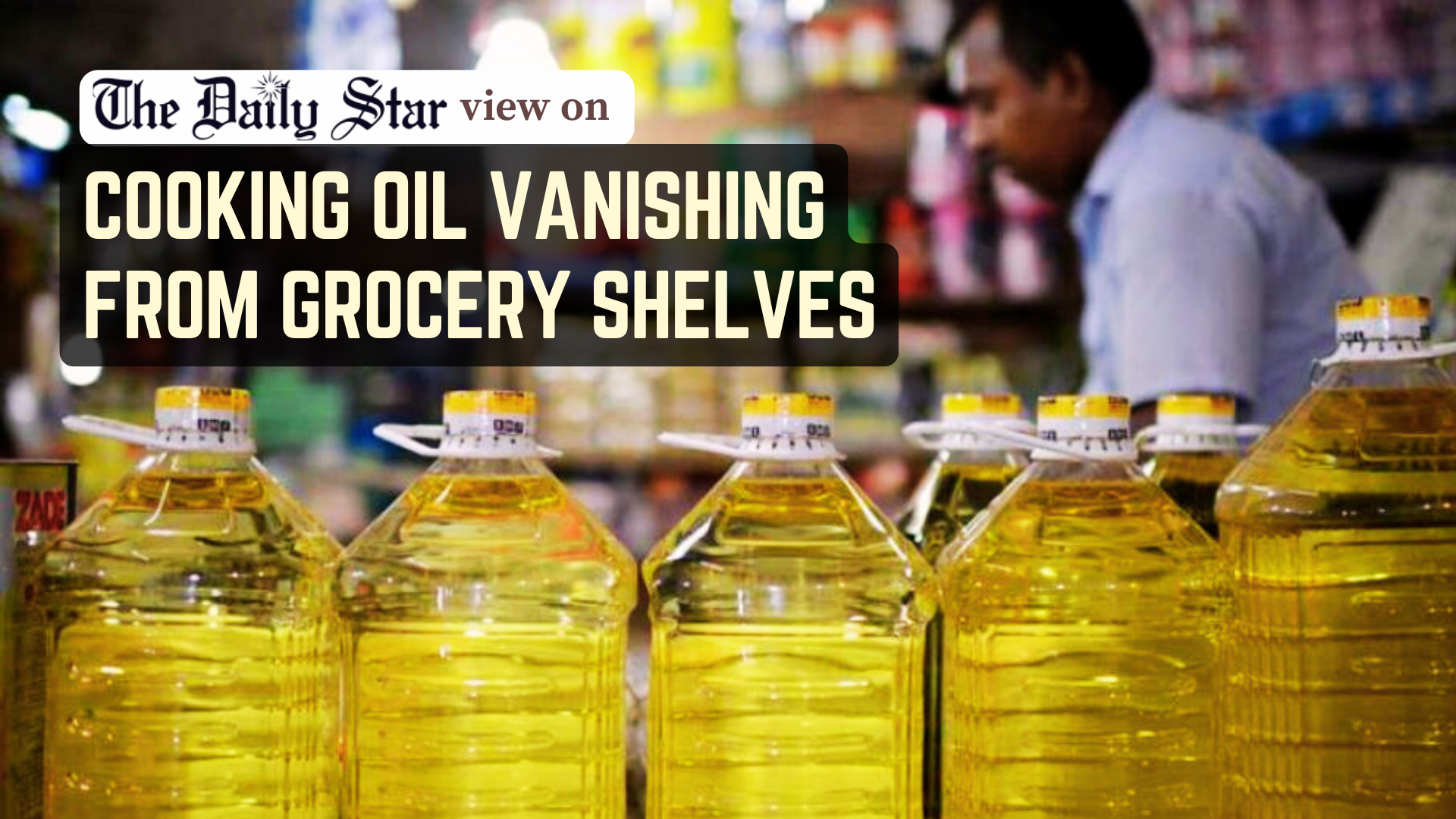Remove bottlenecks in the supply chain

Since taking office six months ago, the interim government has undertaken several initiatives to bring inflation under control, attempting to provide some relief to ordinary people struggling with a cost-of-living crisis for several years now. However, while these measures have had some impact—slightly easing inflationary pressure—their full effect has yet to be felt, largely due to an inefficient supply chain that is riddled with obstacles that continue to drive up the prices of essentials, as a government report has found.
The report, prepared by the Finance Division, highlights structural flaws in the supply chain that prevent consumers from fully benefiting from inflation-control measures. Among them are market manipulation, middlemen intervention, insufficient storage facilities, and weak market monitoring. These issues are deep-rooted, requiring sustained, long-term solutions to ensure effective market regulation and inflation control, the report states.
Maintaining ample food stock to meet national demand and offset any unanticipated crisis is also important. Of course, there are natural causes that may hamper food production and storage. For instance, last year's floods in the eastern part of the country affected Aus and Aman rice production, leading to a shortfall in this fiscal year's target. Or consider the recent outbreak of late blight disease in the northern districts of Thakurgaon and Panchagarh, triggered by cold weather and dense fog, affecting potato cultivation. However, human-induced disruptions play a far more damaging role in our food market.
The Finance Division report has recommended conducting special mobile courts at the district level to monitor and curb price manipulation. However, while this may be effective in the short term, a long-term solution requires overhauling the system to eliminate such exploitative practices.
Think of the artificial crises that are often created. The Bangladesh Trade and Tariff Commission revealed on Sunday that the ongoing shortage of edible oil in kitchen markets is entirely artificial, as leading refiners confirmed no actual supply shortage. Time and again, we have seen how unscrupulous traders have hoarded essential food items to create artificial crises and drive up prices. This manipulation extends to other imported goods as well. The Finance Division report has recommended conducting special mobile courts at the district level to monitor and curb price manipulation. However, while this may be effective in the short term, a long-term solution requires overhauling the system to eliminate such exploitative practices. One way to do this is by setting up a direct supply system where farmers can sell their produce to the government or other market authorities without the help of middlemen.
With Ramadan only a couple of weeks away, kitchen markets are bound to heat up. We urge the government to be prudent in managing this situation. To fully realise the benefits of its inflation-curbing policies, it must put effective measures in place to remove the bottlenecks from the supply chain, making the system efficient and consumer-friendly.



 For all latest news, follow The Daily Star's Google News channel.
For all latest news, follow The Daily Star's Google News channel. 
Comments